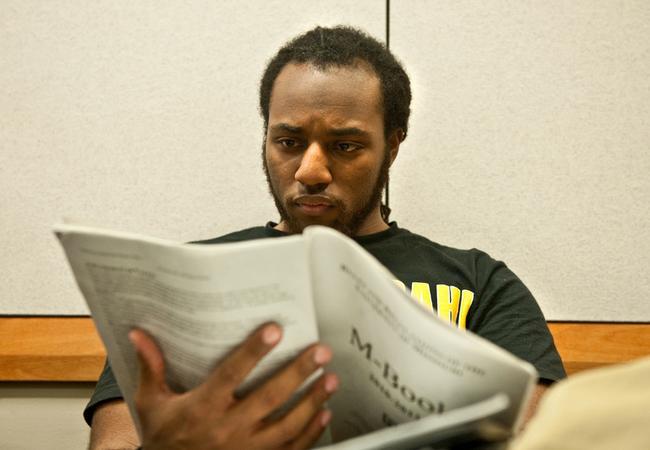
Faculty Council’s overhaul of the general education curriculum culminated in a debate over a diversity course requirement Thursday. The proposed course requirement has caught the public’s attention in the days since a racially-offensive graffiti message was painted on campus last week.
Council members remained divided on what this requirement could potentially mean for MU. Some Faculty Council members brought up questions about the wording of the proposal.
“I think we have an inclination to strive for perfection,” Faculty Council chairwoman Leona Rubin said. “I think there are times that we can’t do that. We may need to say that this is a valuable thing to have happen, and we have to trust that Jim Spain and our colleagues will design a process for the evaluation of courses to fit the current social definition of diversity.”
English department professor April Langley did not hide her emotional investment in the proposal.
“Recent incidents indicate that we’re not doing a good enough job of that, yet it is noted by the American Association of Colleges and Universities that diversity course requirements actually have very positive effects,” Langley said.
According to the requirement proposal, one of MU’s core objectives is for students to observe and critically analyze the human experience.
The diversity course requirement would be implemented in the same method as the Writing Intensive Requirement, according to the proposal. New courses would not be added, but a committee would approve syllabi of existing courses.
The proposal includes a list of courses that could potentially meet this requirement. The courses range from Introduction to Black Studies to Cross-Cultural Journalism and Rural Sociology. The courses on the list were a cause for concern for some faculty members and professor Victoria Johnson, who has led the general education review, insisted the list was not comprehensive.
“There are a number of courses listed, none of which have been approved yet, but based on syllabus are the kind of courses that would be classified as diversity intensive,” Johnson said.
Economics professor Xiaoguang Ni was one of the first to interject against the initiative.
“I fully support the motion that we support diversity, but I question what it will cost,” Ni said.
Ni argued the requirement was mainly symbolic, requiring resources to approve the courses, but not making active changes to the curriculum. Part of Ni’s argument against the requirement addressed the possibility that students would not actually reach out.
The proposal was not voted on, and the issue will be further discussed at the next Faculty Council meeting.
Plant Sciences department professor Bill Wiebold made some closing comments.
“You can make those arguments, but in my mind going to a university means something different,” Wiebold said. “I trust my colleagues that going to a university is broader than just a degree in plant science. We have at least given students an opportunity to grow just a little bit and maybe in a few years the world will get just a little bit better.”